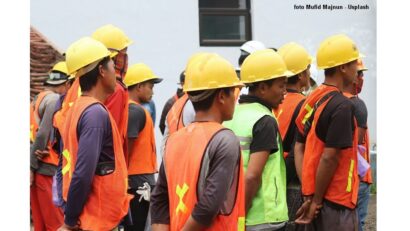Romanian Attitudes 5 Years Past Accession
On January 1st 2007, Romania joined the European Union. Over the following five years, the attitude that Romanians have had towards this move has seen major fluctuations, as a reaction to the local and global economy. In 2008, when the beneficial economic

Eugen Cojocariu, 29.04.2012, 16:45
However, the economic crisis and drastic austerity measures have taken a heavy toll on their morale. Early this year, hundreds of people across the country took to the streets in protests that spanned days. At this point, 70% of Romanians believe that the country is going in the wrong direction. A study was recently released. Called “Public Opinion in Romania in a European Context. Structures and Trends in Societal and Regional Spaces 2007-2011”, the study detailed local attitudes and compared them to other European countries. This study, run by sociologist Dumitru Sandu, drew on Eurobarometers published between 2007 and 2011, and puts forth some interesting conclusions. Here is Dumitru Sandu:
Dumitru Sandu: “One of the major conclusions of the research shows that the main factor in social change in Romania is the dissatisfaction that Romanian young people have towards opportunities offered by institutions today. Back in early 2008, optimism had reached 63%, the highest percentage ever. In the last two years, it slumped from 63 to 27%. Has anyone else had a phenomenon of this magnitude in the EU? Yes, it was young people in Greece.”
The similarity between Romania and Greece, an old EU member state, is surprising for those that are used resort to old sociological clichés, Dumitru Sandu believes. His study revealed that Romanian and Bulgarian attitudes, for instance, mirror closely that of citizens in the south of the EU. Dumitru Sandu explains why:
Dumitru Sandu: “The group formed by the Baltic countries together with Romania and Bulgaria is strongly shaped. We are talking about a poor Europe in the extreme east. This group behaves differently than Central and Eastern Europe: Poland, the Czech Republic, Slovakia, Slovenia and Hungary. The Baltic countries are not included in the northern group, since they are totally different. The south is dominated by a different situation. Right now, there is clearly a struggle between the south of Europe and Central and Eastern Europe. As far as satisfaction with life is concerned, Central and Eastern Europe, the old communist states and newest members, has better social indicators then the south of Europe overall. This is a major change”.
While in the north of the continent the crisis has left almost no traces in terms of morale. In the south things are completely different. Sociologist Mircea Kivu had certain observations to make regarding the delineation of European regions in terms of optimism:
Mircea Kivu: “Of course, Greece and Italy are all in southern Europe, but I would be hard put to call them a region, first of all because that they are not neighbors. The same goes for the Baltic countries, as well as for Romania and Bulgaria. I’d rather try to explain the differences by the common history that brings together these countries. Romania, Bulgaria and the Baltic countries have had a harder time parting with their communist past, and the countries in the southern area have been affected in a major way by the economic crisis”.
Also, the fact that Romanians perceive the country as headed in the wrong direction has to be interpreted by correlating statistical and cultural data, as anthropologist Vintila Mihailescu believes:
Vintila Mihailescu: “It has been repeatedly said that the country is headed in the wrong direction, and that is one of the constant indicators in polls. Here we can culturally interpret the relationship between uneducated society and regimes, which have always been considered as outsiders. This attitude still holds. Power is power, it is the government, ‘the others’ that are always on the outside and are always the ‘bad guys’. As a result, people who believe that things are going in the wrong direction make up a percentage that is not very relevant. In order to understand it, it has to be completed by another type of analysis.”
Romanian confidence in EU institutions is strong and it somehow resembles confidence in the Church: a higher power expected to amend all things wrong here. Dumitru Sandu again:
Dumitru Sandu : “Back in 2006, confidence in the EU stood at 67%, while confidence in the Romanian government was only 27%. The average Romanian seeks solutions to their problems in Brussels, while an Italian, French or British citizen looks for solutions in their own country. This is a fundamental difference. In early 2011, 62% of Romanians stated they trusted the EU. This confidence then lost12 percentage points in one swift stroke over the next five or six months. However, this drop in confidence in the EU is general, not just Romanian. At the same time, Romanians continue to be Euro-optimistic, and optimistic in general. They recover quickly from crisis shocks”.
This zigzag in Romanian attitudes is, however, a favorable condition for social movements, according to the study called “Public Opinion in Romania in a European Context. Structures and Trends in Societal and Regional Spaces 2007-2011”.






























